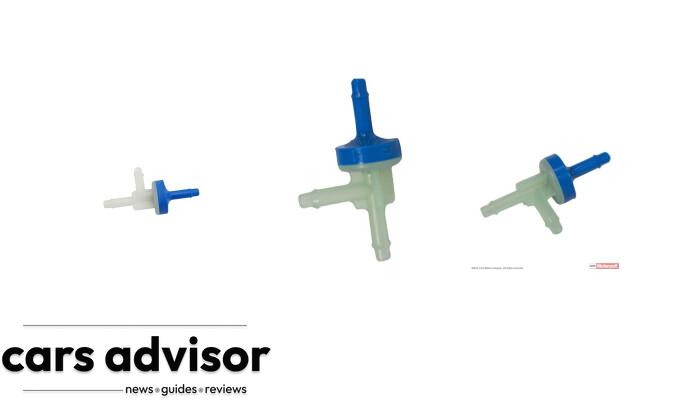As a car owner, monitoring your vehicle’s radiator fluid levels is essential. This critical component helps regulate temperature and ensures optimal engine and heating system performance.
But did you know that Low Radiator Fluid Lower Heating System Heat? When coolant levels drop too low, your engine is at risk of overheating, and the warmth inside your car may suffer.
Understanding Radiator Fluid And Heating Systems
Radiator fluid, also known as coolant or antifreeze, is a liquid that circulates through the engine and helps regulate its temperature, while the heating system in a home works by circulating hot water or steam through radiators to provide warmth.
What Is Radiator Fluid?
Radiator fluid, commonly called coolant or antifreeze, is essential for maintaining a vehicle’s engine temperature.
This specially formulated liquid serves as a heat exchanger and helps regulate the temperature of your car’s engine by absorbing excess heat produced during operation.
To give you an idea of its importance, imagine driving on a hot summer day without any coolant in your system – this would cause the engine to overheat quickly, potentially leading to significant damage or even total failure.
On the other hand, during cold winter, having insufficient amounts of radiator fluid could result in frozen water within your cooling system that expands and causes cracks or leaks, which can be detrimental to your vehicle’s performance.
How Does The Heating System Work?
As someone who has experienced the frustration of a malfunctioning heating system, understanding how it works is crucial for proper maintenance.
The heating system uses hot coolant from the engine to warm up the air that blows through your car’s vents, providing comfort during colder months.
The heated coolant flows through the hoses and enters the heater core inside the dashboard, resembling a small radiator.
It’s important to keep in mind that maintaining adequate levels of radiator fluid or coolant is essential for efficient heating performance.
Low coolant levels can cause issues such as poor heat output or even complete failure of your car’s heating system.
Overheating due to low coolant can cause more serious damage to your engine and its components.
Effects Of Low Radiator Fluid Lower Heating System Heat
The symptoms of low radiator fluid in heating systems can range from reduced heat output to complete failure, but don’t worry; we’ve got you covered with the fixes in the next section.
Symptoms Of Low Radiator Fluid In Heating Systems
When the radiator fluid is low, several symptoms may occur in the heating system.
Here are some signs to look out for:
- Reduced heat output: One of the most noticeable symptoms of low radiator fluid in a heating system is reduced heat output. This means the heating system will not produce enough heat even when the thermostat is turned up.
- Cold air blowing through vents: If no hot air comes from your vents, it could be due to low radiator fluid levels. Without enough coolant circulating through your system, the heater core cannot warm up and distribute hot air.
- Heater core leaks: Low radiator fluid levels can cause damage to the heater core, leading to leaks. This can result in a sweet smell in the cabin or water on the floor mats.
- Strange noises: A lack of coolant can also cause strange noises like bubbling or gurgling from under the hood or dashboard.
- Overheating engine: While not directly related to your heating system, low coolant levels can cause your engine to overheat, leading to catastrophic engine failure if left unchecked.
Regularly maintaining and monitoring coolant levels can help prevent these symptoms and ensure proper heating system function. Always check your vehicle owner’s manual for recommended maintenance intervals and procedures.
Impact Of Low Radiator Fluid Levels On Heat Output
Low radiator fluid levels in a heating system can affect the heat output, causing inadequate warmth or no heat.
When the radiator fluid is low, the heating system becomes inefficient as it cannot circulate enough coolant to generate heat to warm up your home.
In cars, low coolant levels can cause engine overheating and lead to car trouble. The heated coolant may not reach the heater core properly, causing issues such as reduced cabin heat output or a complete lack of heat.
If left unchecked for too long, driving with low coolant could cause your car engine to shut off or sustain severe damage.
Fixing Low Radiator Fluid Issues
To fix low radiator fluid issues, it is essential to check and add radiator fluid, inspect and repair any leaks in the system, flush the radiator and system, and maintain regular heating system maintenance.
Checking And Adding Radiator Fluid
Maintaining the proper radiator fluid level is essential for the heating system to work effectively.
Here are the steps to check and add radiator fluid:
- Ensure the engine is completely cool before checking or adding coolant.
- Locate the coolant reservoir, typically a small, translucent tank near the radiator or firewall.
- Check the coolant level by looking at the markings on the side of the reservoir. You’ll need to add more fluid if it’s below the minimum line.
- Remove the cap from the reservoir and pour in a 50/50 mixture of antifreeze and water until it reaches the maximum line.
- Replace the cap tightly and start the engine to circulate the coolant throughout the system.
- Recheck your levels after driving for a few hours or days to ensure they remain within the proper range.
It is crucial to use distilled water rather than tap water when mixing with antifreeze because it contains minerals that can damage your cooling system over time.
Regularly checking coolant levels and topping off as necessary helps prevent overheating, reduce wear on engine components, and maintain optimal heating efficiency during cold weather conditions.
Inspecting And Repairing Leaks
To fix low radiator fluid issues, inspecting and repairing leaks in the system is crucial.

Here’s how:
- Look for signs of leakage: Check the ground where the car has been parked for a puddle or stains from the coolant. Inspect hoses, connections, and clamps for any visible leaks.
- Pressure test the radiator: If you cannot find any leaks visually, use a radiator pressure tester kit to check for leaks. The kit will help identify where the leak is coming from so that it can be fixed accordingly.
- Replace damaged parts: Once you have identified the source of leakage, replace damaged hoses, gaskets, or other parts as necessary.
- Flush and refill coolant: After repairing leaks, flush out the old coolant and refill your system with fresh radiator fluid to keep it functioning smoothly.
Remember that regular maintenance is essential to ensure your heating system operates efficiently and prevents potential damage caused by low radiator fluid levels or other cooling system issues.
Flushing The Radiator And System
When the coolant has become contaminated or old, it is time for a radiator flush. This process cleans the entire cooling system and replaces old coolant with new fluid.

Here are the steps to take for flushing the radiator and system:
- Drain the old coolant from the radiator by opening the drain valve at the bottom.
- Remove debris or sediment inside the radiator using a hose or compressed air.
- Use a radiator flushing solution to clean out any remaining debris in the system. Follow manufacturer instructions for how long to run the engine with this solution.
- Drain this solution and rinse the entire system with water until it clears.
- Refill with a new coolant that matches your vehicle’s specifications, typically a mix of antifreeze and water.
- Run your engine again to circulate this new coolant through your vehicle’s cooling system while checking all hoses for leaks.
Properly flushing your radiator can extend its lifespan and improve heating efficiency by ensuring the improved circulation of heated coolant throughout your car’s engine block and heater core unit.
A regular maintenance schedule can prevent low radiation fluid issues due to blockages or built-up contaminants that reduce heat transfer efficiency while enhancing protection against rust and other corrosive elements within your car’s cooling systems components such as hoses, thermostat, core, head gasket or water pump seals etc.
Importance Of Regular Maintenance
Regular maintenance of the heating system and radiator fluid ensures optimal performance and prevents potential damage.
Over time, coolant levels can decrease due to evaporation or leaks from hoses and connections in the system.
This can result in decreased heating efficiency or even engine overheating.
Additionally, regular maintenance can help identify any potential leaks or malfunctions before they cause significant problems.
Inspecting the radiator cap, pressure, thermostat operation, antifreeze concentration, and other essential components during routine maintenance ensures everything works correctly.
In short, neglecting regular maintenance for your car’s heating system could lead to expensive repairs if not dealt with timely; thus, it’s best always to keep up with scheduled car service appointments for proper checkups on all important aspects of your vehicle.
Conclusion And Tips For Maintaining Proper Radiator Fluid Levels
In conclusion, low radiator fluid can lower heating system heat in homes and cars. It’s important to understand the workings of your radiator fluid and heating system and how to recognize symptoms of low coolant levels.
Regular maintenance, such as checking and adding radiator fluid, inspecting for leaks, and flushing the system, can help prevent issues with low coolant levels.
Remember that running a car or home heating system without enough coolant could lead to overheating or even damage.
FAQs:
1. Can low radiator fluid impact heating system performance?
Yes! Low radiator fluid levels can negatively affect your vehicle’s heating system by preventing the engine from operating at optimal temperatures and limiting heat output through the dashboard.
2. What are some symptoms of low radiator fluid impacting my car’s heating system?
Some symptoms of a low radiator fluid level impacting your car’s heating include inconsistent or weak heat coming from the heater vents, reduced engine power, or even overheating, which could cause damage to internal components like pistons or head gaskets.
3. How can I check my car’s coolant levels?
To check coolant levels in your vehicle, first, locate the expansion tank nearby your engine – this will typically have a cap on top indicating full/low levels (or “F” & “L”). If necessary, add more antifreeze using only manufacturer-recommended brands. Incorrect products may cause costly damages over time, including head gasket failure, which is extra serious if missed during maintenance checks.
4. Is it safe to continue driving with low coolant?
It is unsafe to continue driving with an insufficiently filled cooling system for any extended period as this could lead to long-term issues harming sensitive internal parts – causing additional expenses when servicing/replacements are required due to being late taking action sooner rather than later when noticed firsthand.






















